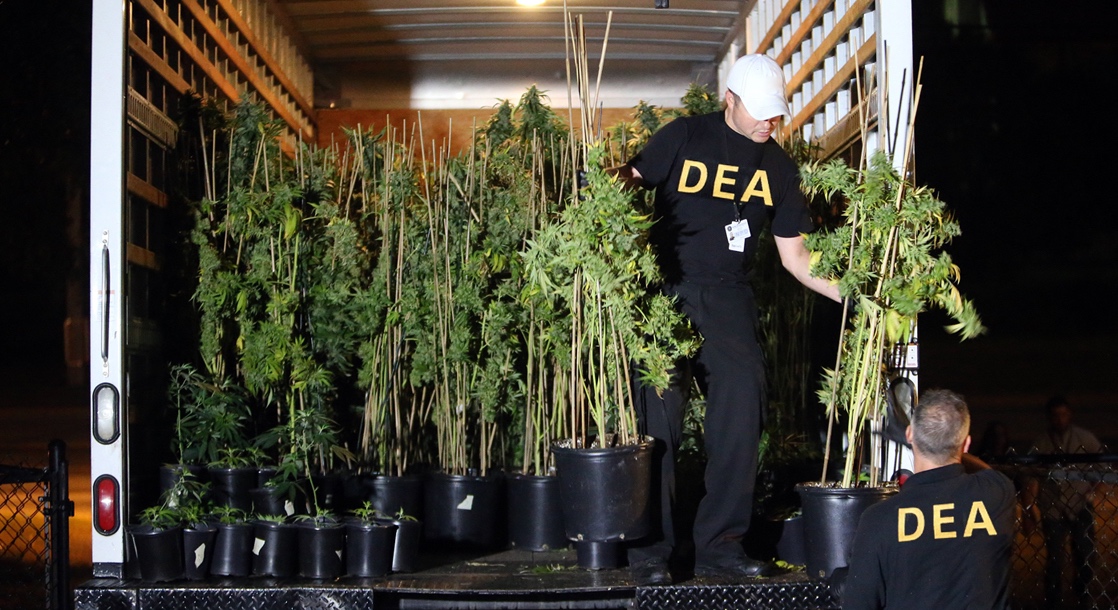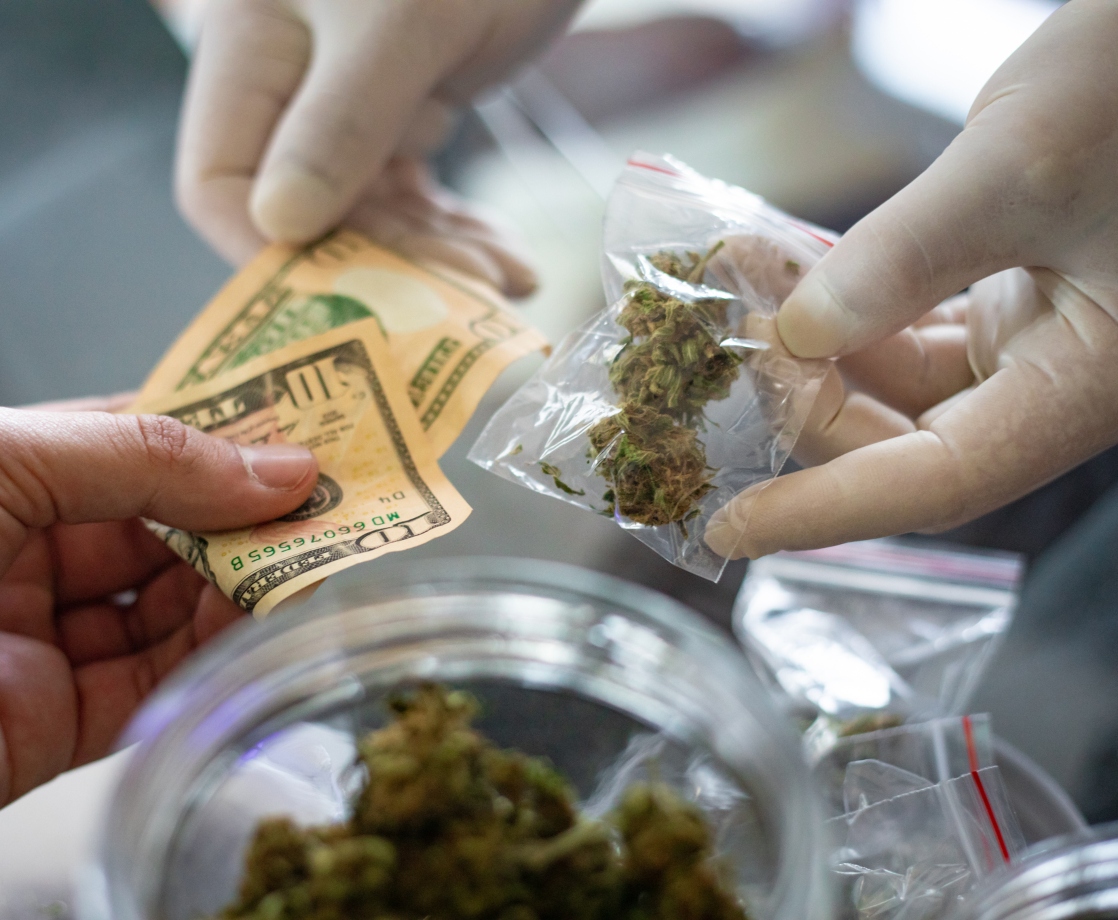While the cannabis community has been waiting with baited breath all summer long in hopes that the U.S. Drug Enforcement Administration would finally come to its senses and downgrade the Schedule I listing of the cannabis plant, the marijuana masses were dealt a major blow on Wednesday evening after a couple of credible news sources revealed that Uncle Sam’s leading dope henchmen had ultimately decided to keep the herb in the same rankings as heroin.
However, perhaps fearing the bad news would cause a barrage of federal officials to be dragged into the streets of the nation’s capital and beat with a rubber hose, the agency tossed a bone in the middle of the medical marijuana scene by moving to allow an expansion on government cultivation sites – an action supposedly designed to promote additional research.
According to a letter dated August 11, 2016, which is signed by acting DEA administrator Chuck Rosenberg, “marijuana will remain a schedule I controlled substance.” However, the agency says it will compromise with the people by allowing more universities to submit applications to grow marijuana than its old friend the University of Mississippi – the only location authorized to engage in cannabis cultivation for the government for almost fifty years.
“Allowing cannabis to be studied by more researchers is certainly good for the scientific community,” Derek Peterson, CEO of Terra Tech, told MERRY JANE. “It opens up opportunity for researching the cannabis plant so companies like ours can bring it’s full potential to market.”
Unfortunately, while some are calling the DEA’s latest decision “a step in the right direction,” it does not appear the agency’s “toe in the water” approach of exploring the therapeutic benefits of the cannabis plant is really going to do much good in the grand scheme of facilitating any more research than what we’ve seen over the past several decades.
Policy experts are saying that as long as marijuana remains a Schedule I dangerous drug — labeling the herb as having “no currently accepted medical use” with a “high potential for abuse” — it will continue to be difficult for scientific minds to cut through the federal government’s red tape in order to find approval for pot-related projects.
“Keeping marijuana in Schedule I shows that the DEA continues to ignore research, and places politics above science," Michael Collins, deputy director of national affairs for the Drug Policy Alliance, said in a statement.
Interestingly, Rosenberg’s letter claims DEA has “never denied” an application to study marijuana as long as it was determined by the Department of Health and Human Services to be “scientifically meritorious.” It goes on to say that over the past two years, the number of cannabis-related studies approved by the agency has more than doubled – some of this research, he points out, even looks into the effects of smoking marijuana on real, live people.
“Folks might be surprised to learn that we support this type of research,” wrote Rosenberg. “But, we do.”
Details on of the agency’s proposal to provide additional support for legitimate research will be published soon in the Federal Register.
With this decision, nothing much really stands to change with respect to cannabis research in the United States.
After all, what good is it if the federal government authorizes more cannabis production, but then continues to make it difficult for most research to move forward because its agencies do not believe in the study goals.
If the DEA were really on board with providing more opportunities in cannabis research, the agency would have downgraded the herb to a Schedule II, which would have opened up some (and only some) additional doors in this ridiculous debacle.
But even if the DEA would have moved to downgrade cannabis to a Schedule II, some policy experts, like Paul Armentano, deputy director of NORML, say it would not have made the plant that much more “accessible for clinical study.”
“These goals can only be accomplished by federally descheduling cannabis in a manner similar to alcohol and tobacco, thus providing states the power to establish their own marijuana policies free from federal intrusion,” Armentano wrote. “If the DEA fails to take this opportunity to take such action, then it is incumbent that Congress does so posthaste.”
Other national marijuana reform groups agree – ending prohibition is the only way.
“The DEA’s announcement is a little sweet but mostly bitter,” Mason Tvert, director of communications at the Marijuana Policy Project, told MERRY JANE. “Praising them for it would be like rewarding a student who failed an exam and agreed to cheat less on the next one. Removing barriers to research is a step forward, but the decision does not go nearly far enough. Marijuana should be completely removed from the CSA drug schedules and regulated similarly to alcohol.”
At this point, our only hope in liberating the leaf on a grand scale is for Congressional leaders and the President of the United States to get serious about supporting widespread nationwide reform efforts. Until then, the cannabis community remains at the total mercy of the government’s prohibitionary standard.
The DEA’s official decision on rescheduling marijuana is as follows:
The FDA drug approval process for evaluating potential medicines has worked effectively in this country for more than 50 years. It is a thorough, deliberate, and exacting process grounded in science, and properly so, because the safety of our citizens relies on it.
Using established scientific standards that are consistent with that same FDA drug approval process and based on the FDA's scientific and medical evaluation, as well as the legal standards in the CSA, marijuana will remain a schedule I controlled substance. It does not have a currently accepted medical use in treatment in the United States, there is a lack of accepted safety for its use under medical supervision, and it has a high potential for abuse.
lf the scientific understanding about marijuana changes – and it could change – then the decision could change. But we will remain tethered to science, as we must, and as the statute demands. It certainly would be odd to rely on science when it suits us and ignore it otherwise. [via: https://www.dea.gov/divisions/hq/2016/Letter081116.pdf]











